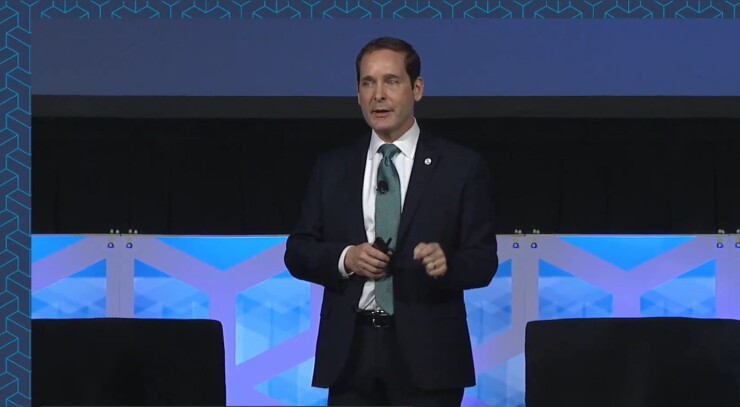The Institute of Internal Auditors and the Association of Certified Fraud Examiners are finding increased use of internal whistleblower hotlines at organizations, backed by anti-retaliation policies aimed at protecting employees, even as allegations emerged this week about retaliation against an IRS whistleblower over a case involving the Biden family.
The IIA and ACFE released a
However, while 75% of respondents indicated their organizations have a whistleblower hotline program, the other 25% said that their organization did not have one, that a program was being considered, or that they were not sure if their organization had a program.
The survey found an 83% majority of organizations provide multiple channels for reporting as part of their hotline programs. The most common channels provided by organizations are dedicated phone numbers, website and online reporting mechanisms, and dedicated email addresses. Most hotlines (91%) can receive anonymous reports, and 83% are able to receive reports 24 hours a day, 365 days a year.
The report examines the structure and components of whistleblower hotline programs among the organizations of survey respondents, and then looks at the aspects of hotline programs that contribute to their success.
"Research by the ACFE indicates that whistleblower tips are by far the most common ways that fraud schemes are detected," said ACFE president and CEO Bruce Dorris, in a statement. "Without effective whistleblower hotline programs in place, employees may not know where to turn if they suspect fraud is occurring within their organization."
The most common business units with responsibility for overseeing whistleblower hotlines are internal audit (42%), audit committee (36%) and compliance (also 36%).
"Internal auditors and anti-fraud practitioners play vital roles in their organizations' whistleblower hotline programs," said IIA president and CEO Anthony Pugliese, in a press release. "Whether it's administrating the program or investigating tips, we're on the front line in the fight against fraud. This IIA and ACFE collaboration shines a light on the need for further fraud detection and prevention programs and provides a roadmap for how to create them."

IRS whistleblower
The report comes at a time when lawmakers in Congress are demanding the Internal Revenue Service respond to a whistleblower's reported complaints about President Biden, his son Hunter Biden and other members of the Biden family in an alleged tax fraud investigation.
House Ways and Means Committee Chairman Jason Smith, R-Missouri, sent a
In his letter, Smith demanded the IRS provide a briefing and explanation to his committee after Werfel indicated during a recent oversight hearing that there would be no such retaliation.
"I write to request an urgent briefing and explanation from your office regarding extremely troubling allegations that run directly counter to your sworn testimony in front of the Committee on Ways and Means," Smith wrote. "An Internal Revenue Service employee alleges that he or she has been retaliated against for seeking to share information with Congress as a protected whistleblower, despite your testimony before the Committee that 'there will be no retaliation.' These allegations are extremely serious. Such retaliation not only discourages whistleblowers from coming forward to Congress but can also constitute an illegal violation of statutory protections for whistleblowers."





